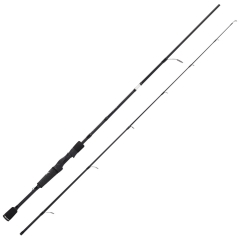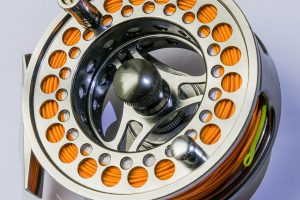The differences between halibut and grouper are quite striking. These two fish come from two different kinds of fish families. They are vastly different in size, taste, characteristics, and color. The first difference is that the flesh of a halibut is more delicate than that of a grouper. Grouper has robust flesh, while halibut has more delicate meat.
What are the Major Differences Between Grouper and Halibut?
A grouper is a type of fish you can find in warm coastal waters worldwide. Halibut is a fish you can find in cold, deep ocean waters. Four of the most important differences are:
- Size: Grouper can be up to three times the size of halibut. Halibut, on the other hand, is typically smaller.
- Cleaning: Grouper requires a little more care than halibut when it comes to cleaning. Their scales are harder to remove, and they can have some tough skin.
- Fishing Locations: Grouper are found in deeper waters than halibut, which makes them more likely to be caught in deep sea fishing expeditions. Halibut prefer warmer water and are more often found near the shore.
- Food Preferences: Grouper tend to eat smaller fish and crustaceans, while halibut eat a wider variety of things, including other fish and marine mammals.

How do you tell the difference between Grouper and Halibut?
There’s a big difference between these fish, and you need to know the signs before ordering or purchasing them. To help you choose the right fish, here are five things to consider:
1. Size. Groupers are typically much larger than halibut, and their scales are slightly more pronounced. Their size is a straightforward way to tell the difference between grouper and halibut. Halibut can get up to 50 inches long, while grouper typically grow to be 1-2 meters long. A grouper can weigh anywhere from 20-330 pounds. Fish like halibut can weigh 10-120 pounds. Halibut has a pronounced dorsal fin and a smoother texture than a grouper. Also, the grouper has a wider mouth than halibut, so it’s easier to catch.
2. Color. Halibut tend to be a lighter color than groupers, with some darker spots on their bodies. Grouper can also be slightly darker but usually has a richer hue overall.
3. Texture. Grouper has a slightly softer texture than halibut, partly due to their higher percentage of water content.
4. Taste. Both fish have a mild, buttery flavor that can vary depending on where they were caught and how they were prepared.
5. Cooking method. Grouper can be grilled or smoked, while halibut is best cooked fresh or frozen.
The Differences in Fat Content of These Two Different Types of Fish
The fat content of halibut is usually lower than that of grouper. Omega-3 fatty acids are found in halibut and grouper. There are many benefits associated with Omega-3 fatty acids. Some of their benefits are preventing heart disease and other illnesses and improving cognitive functions.
There is also a difference in mercury levels between these two types of fish. Grouper has a low mercury level, while halibut has a high level. Remember, when you consume too much mercury, it can harm your health.

Grouper vs. Halibut Which is better for cooking?
You may have heard of grouper and halibut as a seafood-lover. The question is, which fish are most suitable for cooking, and what exactly are they? Here are a few key differences between these two popular seafood options. Furthermore, grouper has a thicker and firmer flesh than halibut. The halibut meat is also softer, but its flavor is more intense.
Black, orange, yellow, and red groupers are the most common types of white-fleshed grouper. They can grow up to 2 meters long and weigh 150 kg (330 pounds). If you want to enjoy the delicate flesh of grouper, simmer them over low heat. You can also grill or fry them.
The halibut fish is less popular than the grouper and can be found in salt water. Unlike other fish species, halibut have a characteristic “hump” on their heads. Due to its high omega-3 fatty acid halibut is also considered one of the healthiest types of fish to purchase. The most efficient way to cook halibut is to cook it quickly.
Why is grouper better than halibut?
Grouper can be considered one of the best types of fish to eat because it has a variety of flavors and textures that make it unique. Here are some reasons why grouper is better than halibut:
- Grouper is a meaty fish with a lot of flavors. It can be cooked in many ways, and there is something for everyone to enjoy.
- Halibut can be very dry and have little flavor.
- Grouper tends to be cheaper than halibut.
Flavor profiles Grouper vs. Halibut
Halibut are primarily white, while grouper can be a mix of colors, including black, gray, and silver. Halibut has a flaky, smooth flesh and a mild flavor with a slightly strong aftertaste. Groupers have firmer flesh that’s also quite flaky but has a sweeter taste with a more umami aftertaste. Both fish have some solid bones but are relatively easy to cook.
Grouper is a fatty fish that tends to have a light, flaky texture. On the other hand, halibut is a meaty fish with a denser texture. Additionally, grouper often has a sweeter flavor than halibut.
The Pros and Cons of Cooking Grouper and Halibut
Despite their different flavors and cooking requirements, grouper and halibut share some common advantages and disadvantages. For example, both species are low in fat and calories, making them a healthy choice for seafood lovers looking to reduce their intake. Grouper also tends to be less expensive than halibut.
However, groupers are more versatile in cooking methods; they can handle high heat, but halibut seems more difficult to cook as it takes less time. Because of its strong taste, you can’t cook halibut. It can’t be cooked in a versatile way.
Tips for cooking Grouper and Halibut
Here are a few tips to help you cook grouper and halibut perfectly:
- Grouper generally takes a bit longer to cook than halibut, so plan accordingly.
- Grouper is best steamed or grilled.
- Be sure to use salt and pepper sparingly when seasoning fish since they are naturally salty.
Halibut is harder to cook than grouper because it doesn’t have a lot of flesh and thick skin. Start by heating some oil in a frying pan and cooking the halibut over high heat until brown on both sides. Then lower the heat and let the fish simmer in its juices for about 10 minutes.
Grouper vs. Halibut Nutrition Comparison
Among the main differences between grouper and halibut is their dietary content. Compared to halibut, grouper has high protein and a low-fat content. In addition, the taste of grouper is more delicate than that of halibut.
A 100-gram serving of grouper provides 18 grams of protein (4% of the daily value) and essential vitamins and minerals. Grouper has a major downside: its mercury levels are higher in many cases.
There are also 16 grams of protein in every 100 grams of halibut (4% of the daily recommended amount) and essential vitamins and minerals. Mercury is another downside to halibut-like grouper.
Conclusion
If you’re looking for a fish that’s both nutritious and delicious, two options that come to mind are grouper and halibut. As we have mentioned, you might consider opting for grouper over halibut, as it can be cooked in various ways, making it a versatile grouper option for any meal. Both of these fish varieties are high in protein and omega-3 fatty acids, which make them ideal for those looking to improve their overall health.












Pingback: What is the Difference Between a Grouper and Branzino? | Reel Fishing Guru
Pingback: What Is a Misty Grouper? | Reel Fishing Guru